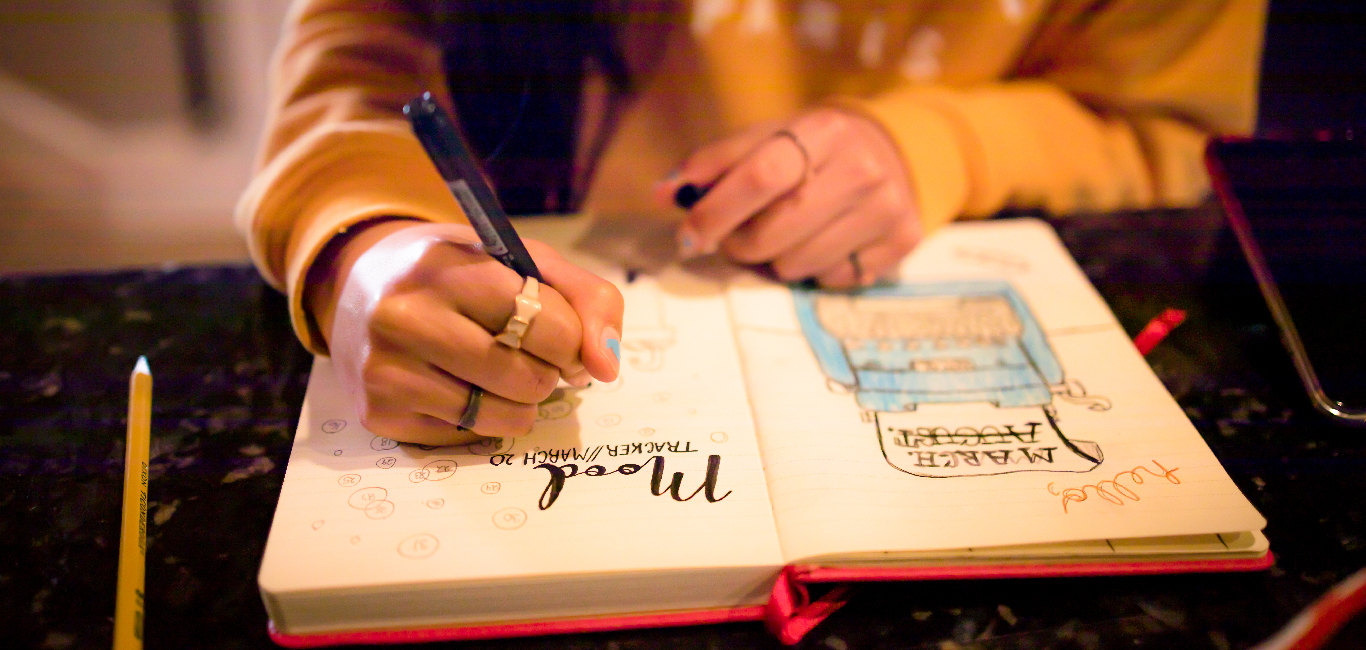
Saba Farha, 20, an arts student from Bengaluru, picked up journaling by coincidence. “People’s remarks about my weight and comparisons with my siblings got to me,” confesses Farha. “I started writing every time someone triggered negative emotions in me. Now I understand what upsets me and manage it better.”
An understated yet effective tool that can help one’s mental well-being is journaling. The simple act of writing down one’s thoughts and feelings comes loaded with benefits. Arouba Kabir, founder of Enso Wellness, a mental health and wellness platform, Bengaluru, says, “Journaling is the act of jotting down our emotions, ideas, problems and events we wish to remember and so on. Thus, we track what is happening in our lives including growth, achievements, fears, and anxieties.”
Benefits of journaling
- Using both sides of one’s brain: Kabir says, “Journaling is a left-brain activity that is responsible for rationality and reasoning. Our right brain is responsible for emotions, creativity, and thoughts. So, when we journal, we are engaging with both sides of our brain.” Thus, journaling increases intellectual capacity.
- Reprogrammes one’s actions: When we write down our thoughts, it helps us recognise the emotions. Writing about life incidents help us understands. By recognising the emotion behind the response to the stimuli, the brain can be reprogrammed into processing emotions better.
- Taking ownership of one’s own emotions and actions: Often, we base our emotions on external factors like interactions with others. Jotting such emotions down gives us control over what we are feeling, thus helping us manage them better.
- Decluttering the brain: “I can shake off everything as I write, my sorrows disappear, my courage is reborn.” This quote comes from the celebrated diarist Anne Frank, which confirms the power of journaling as a form of expression. Hence, when we write our emotions down, we are expressing them on paper. By doing so the extra baggage is shaken off the brain.
- Coping mechanism: Journaling every day helps in decreasing the stress hormone cortisol and in regulating anxiety, depression, and stress. When we put our concerns on paper, we can cope better.
Types of journaling
Whenever we talk about journaling, the focus is more on writing our thoughts or feelings. However, there are many different forms than just plain writing.
- Gratitude journal: Psychologists Dr Robert A Emmons of the University of California, Davis, and Dr Michael McCullough of the University of Miami studied the apparent effects of gratitude. Those who wrote about gratitude were more optimistic and felt better about their lives. Therefore, maintaining a gratitude journal positively impacts mental well-being.
- Freewriting journal: Freewriting, as the name suggests, refers to letting thoughts flow freely on paper. It helps declutter minds, increases creativity, acts as a brainstormer, breaks writer’s block, and so on. Freewriting over time also improves one’s writing skills.
- Art Journal: “Why write when we can use art to express our thoughts?” says Keerthi, a botanist from Tumakuru. For Keerthi writing seems confined. She believes the purpose of a journal is to let creativity take over, which can also be done through drawing, sketching, line art, collage, and so forth.
- Bullet journal: The concept of these journals is to write using pointers. The biggest advantage of such journals is it helps in organising one’s life and staying productive. These are quite helpful as they include to-do lists, daily/weekly/monthly schedules, goals, water intake tracking, sleep, mood tracking and so on.
How to journal consistently?
We can relate to the idea of having a diary at some point in our lives. Diary writing as children becomes journaling as adults. But one tends to leave it on the shelves as life gets busier. Sarah Jennifer, 24, based in Bengaluru, says “Journaling helps me increase my productivity and organise my thoughts. I used to keep a listicle journal but never wrote regularly.”
Kabir says, “Keep a mini notebook to journal whenever you are free and don’t treat it as a task.”
















